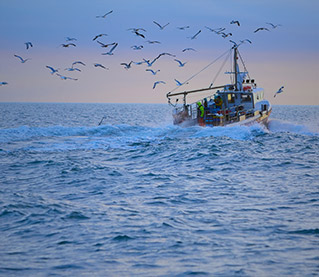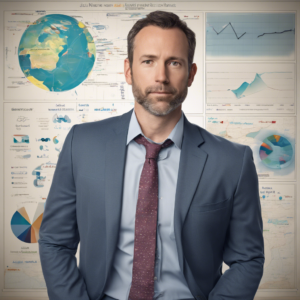The Blue Economy, which sustainably exploits maritime resources while preserving our ocean ecosystems, represents a real breath of fresh air for our future. At a time when overfishing, pollution and climate change threaten our seas, it is crucial to redefine our relationship with the ocean. By adopting innovative and sustainable practices, we can not only protect our maritime heritage, but also create viable economic opportunities. From ethical aquaculture to the exploitation of renewable marine energies, the Blue Economy offers promising models that combine protection of biodiversity and economic development. It is time to explore these perspectives and act to transform our oceans into true engines of sustainability.
| Axis | Description |
| Circular economy | Reduction of waste through the recycling of maritime resources, promoting sustainable use. |
| Renewable energies | Harnessing ocean resources to produce energy, such as offshore wind and tidal power. |
| Sustainable tourism | Development of environmentally friendly tourism practices, preserving marine biodiversity. |
| Responsible aquaculture | Promotion of sustainable marine farming to meet food demand without harming ecosystems. |
| Technological innovation | Encouraging new technologies to monitor and preserve ocean health. |
| Education and awareness | Programs aimed at educating the public about the importance of oceans and sustainable practices. |
- Circular economy: Reduction of marine waste through recycling and reuse of resources.
- Sustainable fishing: Adoption of practices that preserve marine ecosystems while guaranteeing resources for the future.
- Responsible aquaculture: Development of marine farming that minimizes ecological impact.
- Renewable energies: Exploitation of maritime resources (wind, tidal) for clean energy.
- Ecological tourism: Promotion of activities that respect marine biodiversity while supporting local communities.
- Technological innovation: Using technologies to monitor and protect marine ecosystems.
- Protection of biodiversity: Initiatives to restore habitats and protect endangered species.
- Education and awareness: Programs aimed at informing the public about the importance of the oceans and their preservation.
- Public-private partnerships: Collaborations between companies and governments to develop sustainable marine projects.
- Access to markets: Supporting coastal communities to develop sustainable and accessible products.
Table of Contents
ToggleThe Blue Economy: Towards Sustainable Use of Maritime Resources
L’Blue Economy represents an innovative approach placing the oceans at the heart of sustainable economic development. It aims to responsibly exploit the maritime resources while preserving biodiversity and marine ecosystems.
The protection of marine resources is a global priority. Sustainable management of these resources is crucial to prevent overfishing, respect marine flora and fauna, and ethically manage human activities. By integrating sustainable practices, the blue economy promotes the resilience of the oceans in the face of anthropogenic and climatic pressures.
The initiatives in blue economy offer vast opportunities in various areas:
- Renewable marine energy: the implementation of innovative solutions to exploit the energy of waves, tides and currents.
- Maritime ecological tourism: encouraging tourism practices that respect the environment and local communities.
- Ethical aquaculture: development of sustainable aquaculture aimed at minimizing environmental impact.
- Maritime technologies: investment in green technologies to improve the monitoring and management of marine ecosystems.
One of the major objectives of the blue economy is to ensure that innovations respect the rights of the sea and international regulations. It is imperative to involve all stakeholders in order to put in place common strategies to protect our oceans.
With the World Bank emphasizing the importance of sustainable management of marine resources, it is becoming more and more evident that innovative and responsible approaches are necessary for a future where economy and ecology go hand in hand.
The Principles of the Blue Economy
The potential of the blue economy to transform our oceans into opportunities sustainable is immense. Marine resources, when managed responsibly, can provide a myriad of economic and environmental benefits. Adequate management of maritime resources helps preserve biodiversity while boosting the economy of coastal areas.
The basic principles of the blue economy include the integrated and sustainable use of maritime spaces. This means defining marine protected areas, promoting conservation practices, responsible fishing, and invest in environmentally friendly technologies. For example, Ivory Coast is implementing initiatives to raise awareness among local communities of the importance of sustainable management of farmed fish.
Governments and businesses have a crucial role to play in the transition to a blue economy. They must create regulations to protect marine ecosystems and encourage technological innovation. In Madagascar, efforts are underway to improve maritime sector infrastructure to minimize environmental impact and maximize economic benefits.
For the blue economy to be effective, it is essential to foster a framework for collaboration between the different stakeholders. This includes regulators, researchers, private companies, and local communities. National maritime spatial planning, such as that carried out by Vietnam, is an excellent example of an integrated strategy aimed at optimizing the use of maritime spaces while conserving natural resources.
Blue economy initiatives are not limited to fishing practices and technologies. They also include the ecological tourism, the production of renewable marine energy, and thesustainable aquaculture. These activities, when well managed, can contribute significantly to a greener and sustainable economy.
Key Sectors of the Blue Economy
L’blue economy is the key to transforming our oceans into sustainable opportunities. With a focus on effective management of maritime resources, this approach promotes both economic growth and the preservation of marine ecosystems. The initiative is based on the principle of non-excessive extraction and aims to optimize the use of ocean resources while minimizing ecological impact.
Sustainable practices in fishing, ethical aquaculture and renewable marine energies are at the heart of this transformation. For example, ethical aquaculture promotes the cultivation of fish and seafood in ways that protect natural habitats and reduce overfishing. Additionally, marine energy initiatives include harnessing tides and ocean currents to produce clean, renewable energy.
Blue economy sectors include:
- There sustainable fishing and ethical aquaculture
- THE renewable marine energies (wave, tidal, marine wind)
- THE maritime ecological tourism
- Marine biotechnology
- There marine waste management and the fight against pollution
There marine biotechnology also plays a crucial role. It includes the research and exploitation of marine organisms for new medical, cosmetic and food applications. This innovative branch has the potential to create new jobs while preserving biodiversity.
Encourage the maritime ecological tourism not only raises awareness of the importance of preserving the oceans, but also generates stable income for local communities. Activities such as scuba diving, guided tours and cetacean watching promote responsible interaction with the marine environment.
By adopting an approach based on the blue economy, it is possible to address the challenges of climate change and marine pollution. THE technological innovations and sustainable practices are integrated into policy and business decisions, guiding the world toward a future where economic prosperity and ocean health go hand in hand.

The Blue Economy refers to sustainable economic practices that exploit maritime resources while preserving the ocean environment.
By promoting sustainable jobs in sectors such as fishing, marine tourism and renewable energy, the Blue Economy can improve the economic conditions of coastal communities.
Challenges include overfishing, marine pollution and climate change, all of which can undermine efforts to develop a sustainable marine economy.
Innovative technologies, such as satellite monitoring and resource management systems, play a key role in the sustainability and effectiveness of Blue Economy practices.
Businesses can adopt sustainable practices, invest in renewable energy projects and engage in the protection of marine ecosystems to contribute to the Blue Economy.
Successful initiatives include mangrove restoration projects, certification programs for sustainable fishing, and protected marine parks that promote biodiversity and local livelihoods.









